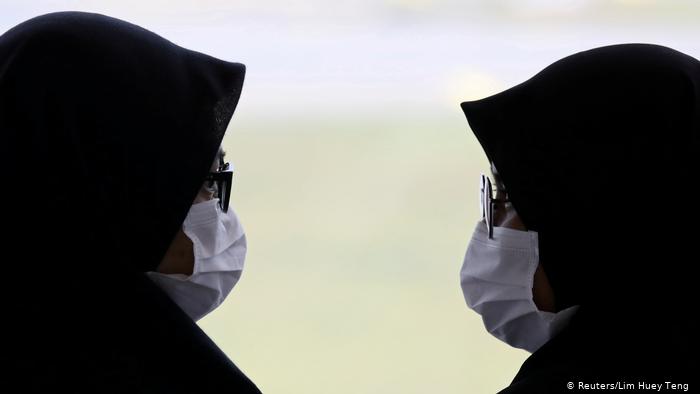Mozambique: Terrorists attack hunting area in Niassa reserve - AIM
Coronavirus: Panic and distress among PALOP students in Wuhan, 30 are from Mozambique

FILE: For illustration purposes only. [File photo: DW]
There are approximately 475 Mozambican students in China, 30 of them in Wuhan. There are close to 500 Angolan students and about 350 Cape Verdean students overall in China, 16 of them in Wuhan. Students from São Tomé in China number less than 200.
Some students from Portuguese-speaking African countries living in the birthplace of the coronavirus feel abandoned by their embassies, but those living in Beijing report feeling well supported.
“We want them to help us get out of this city, even if it is to another city here in China. We just want to get out of here,” a desperate Jéssica Mendes Silva says. The third-year Guinean Technology student lives in Wuhan, the epicentre of the coronavirus.
ALSO READ: “I’m in a panic…” – Francisco Sithoi Jr., Mozambican student in China | LISTEN
“You can’t even get food. There is no food. It is difficult to buy food here. My father has been unable to send money for a week because the banks are closed. We are really upset,” she told DW Africa.
There are three Guinean students in the capital of Hubei province in central China. Another of them, Guilende Pereira, is equally alarmed. “Look, the situation here is very critical, we don’t know what to do,” she says. “I don’t have much to say, but we are in a very bad situation here.”
In Beijing, the situation is less complicated
PALOP students living outside this critical region are not so alarmed. There is a lot of concern, yes, but life goes on with a semblance of normality, Angolan student Arnaldo Dala reports. “Because I am in Beijing, which is the capital, the virus has not spread to the point that markets are short of food, the Beijing-based engineering student says. “There is still food in supermarkets and informal markets.”
Mozambican Francisco Sitói Jr. also lives in the Chinese capital. He says he is on vacation, which was due to end on February 24, but, because of the disease, Chinese authorities have postponed the resumption of classes to a date still to be announced.

But Sitói J.’s routine has changed a lot since January 20, when news about the coronavirus broke.
“The situation we are experiencing now is one of panic. Everyone is afraid of this coronavirus, which has been killing and infecting more and more people – to date (January 28), about 4,000. So, the situation is of panic, total alert. The routine has changed a lot. You could say we are under house arrest – we are prevented from moving.”
The majority of students from African PALOP countries are in China and benefiting from scholarships as part of partnerships between their home countries and the Asian giant.
“Angolan Embassy should look after students in Wuhan”
What support are students receiving from their embassies receiving at this critical moment?
“I don’t have much [bad] to say about the embassy, because I recently got a call from them asking how I was doing and how the other students at the same college as me were. They asked me basic things, if I needed anything,” Angolan student Arnado Dala says.
“If they want to do something [more], I think the embassy should look at students who are in the city most affected by the virus,” Arnado counsels. “As far as I know, the embassy is doing everything possible, subject to their limitations and taking into account that we are in another country. But other countries are doing more – they’re evacuating their fellow citizens from places where the virus is most virulent.”
“As far I am aware, no Angolan in Wuhan has been infected with the coronavirus,” he concludes.
Students in constant contact with the Mozambican embassy
Neither do Mozambicans not feel helpless – at least those who are not in Wuhan.
Francisco Jr. describes what the Mozambican embassy has done for his fellow citizens.
“We have had lots of support, in terms of information. The embassy has even made available the Chinese authorities’ emergency contact numbers, so we can contact them in case of emergency. So we have been in constant contact with the embassy, talking about how we can survive this phase – there has been plenty of information.”
Due to the lateness of the hour in China at the time of this report, it was not possible for DW Africa to speak to any PALOP embassy, but it plans to do so soon.













Leave a Reply
Be the First to Comment!
You must be logged in to post a comment.
You must be logged in to post a comment.